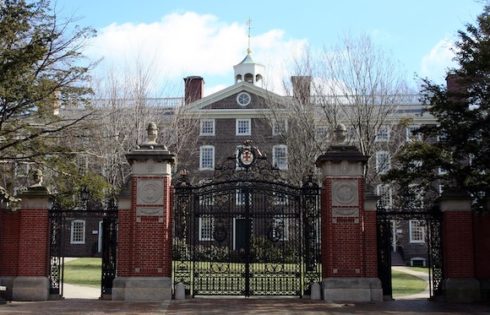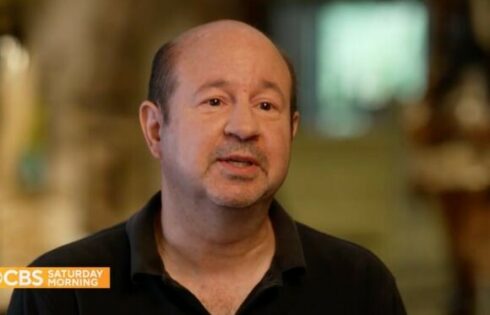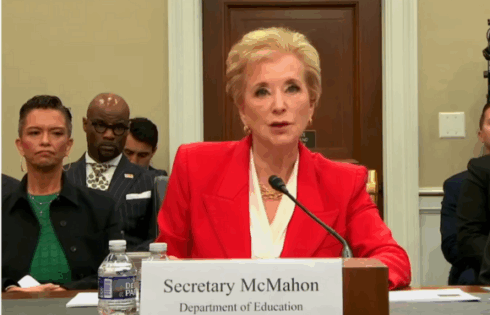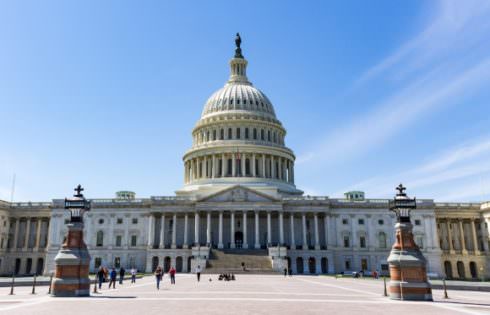
OPINION: Under the auspices of ‘academic freedom,’ the program is fully supported from the top down
After a brief pause, UT-Austin recently restarted the GoKar program, which develops critical race theory training materials for 4- and 5-year-olds who are white.
This $100,000 program, funded directly by university administration — and by extension taxpayer dollars — represents a grave misuse of state funds for political purposes.
The goal of the project is not to study racism or anything like that, but to develop materials to convince white preschool-aged children of the particular political views of researchers.
 It is explicitly motivated by the ideas of Robin DiAngelo, who makes statements such as: “Raising white children to be white is a form of child abuse.”
It is explicitly motivated by the ideas of Robin DiAngelo, who makes statements such as: “Raising white children to be white is a form of child abuse.”
Sadly, the faculty and administrators have successfully hidden behind a misunderstanding and abuse of the concept of academic freedom to defend the program and continue its funding without facing accountability for its content.
No one could seriously claim that this proposal would have been funded and defended if it were seeking to provide, say, patriotic education for preschoolers, under the pretense of measuring the effect of such a program on these attitudes.
And, imagine if such training were to be focused only on black preschool-aged children, a subset the researchers deemed deficient in patriotism.
Academic freedom is a great ideal, but academic freedom for only certain ideas is not academic freedom at all. The defense of this program as an exercise in academic freedom breaks down even further upon careful examination.
Here, with GoKar, the university actively chose to provide $100,000 of state money to engage in political persuasion aimed at 4- and 5-year-olds based on the claim that it would be too late to wait until they are adults, or even slightly more mature children, to get them to come around to the political views of the researchers.
GoKar is just one, though a particularly egregious, case of UT-Austin diverting money intended for the support of teaching and research to political activism.
The provost’s DEI grants provide a laundry list of such diversions, with many not even having the pretense of research projects. I assure you there is no equivalent list of provost grants to promote alternative perspectives on any of these DEI issues.
The diversion of state resources to political advocacy through bureaucratic means, with extreme resistance to outside monitoring or oversight by the democratically elected branches of government, is not an exercise in academic freedom but instead a grave threat to the free exchange of ideas.
If certain ideas are so advantaged through government support, as they are at universities, both through state appropriations being diverted and through direct federal programs, then we do not have a true marketplace of ideas.
The leaders of the state of Texas have been wildly deficient in their monitoring of the use of state funds for political advocacy, with Lieutenant Gov. Daniel Patrick and Governor Greg Abbott rebuffing any attempts at reform and allowing the Board of Regents to ignore and promote these measures.
But this failure of leadership does not mean that the people of Texas deserve to have their tax dollars used to fund political advocacy that many will find repugnant.
The people of Texas deserve a say in how the university spends their money, and I hope they will stand up to their leadership and call for major reform and massively increased oversight.
Academic freedom must be a broadly applied concept; if it protects only those who hold favored views on campus against interference from outside, but does not protect views that are not popular within the university, it is not academic freedom but instead the internal enforcement of orthodoxy.
Clearly, that is what we have at UT-Austin now.
Abusive research inquiries are used to punish researchers whose findings run afoul of the accepted conclusions on campus, and individuals who play key roles in such attacks end up, say, promoted to chief deputy positions.
Initiatives aimed at bringing different ideas to campus are blocked based on an ideological filter.
Finally, and most egregiously, UT-Austin has implemented a Diversity, Equity and Inclusion policy that calls for “diversity skills” to be part of all hiring and promotion, and requires a DEI representative on all hiring committees, a policy whose original form was described as a potential political test by no other than the highly respected Foundation for Individual Rights in Education.
No university with such policies can claim to protect academic freedom, and as such the fig leaf of “academic freedom” is only used to cover up for programs that the UT-Austin administration supports on its own merits.
And that includes teaching white four-year-olds that they’re racist.
 Richard Lowery is an associate professor of finance at the University of Texas at Austin and a senior scholar at the Salem Center for Policy. He has been at UT since 2009, when he completed his Ph.D. in economics at Carnegie Mellon University. He is an applied game theorist, with research in banking, investment banking, real estate, and other topics.
Richard Lowery is an associate professor of finance at the University of Texas at Austin and a senior scholar at the Salem Center for Policy. He has been at UT since 2009, when he completed his Ph.D. in economics at Carnegie Mellon University. He is an applied game theorist, with research in banking, investment banking, real estate, and other topics.
MORE: Check out the new Campus Cancel Culture Database
MAIN IMAGE: UT Austin screenshot
Like The College Fix on Facebook / Follow us on Twitter





Please join the conversation about our stories on Facebook, Twitter, Instagram, Reddit, MeWe, Rumble, Gab, Minds and Gettr.